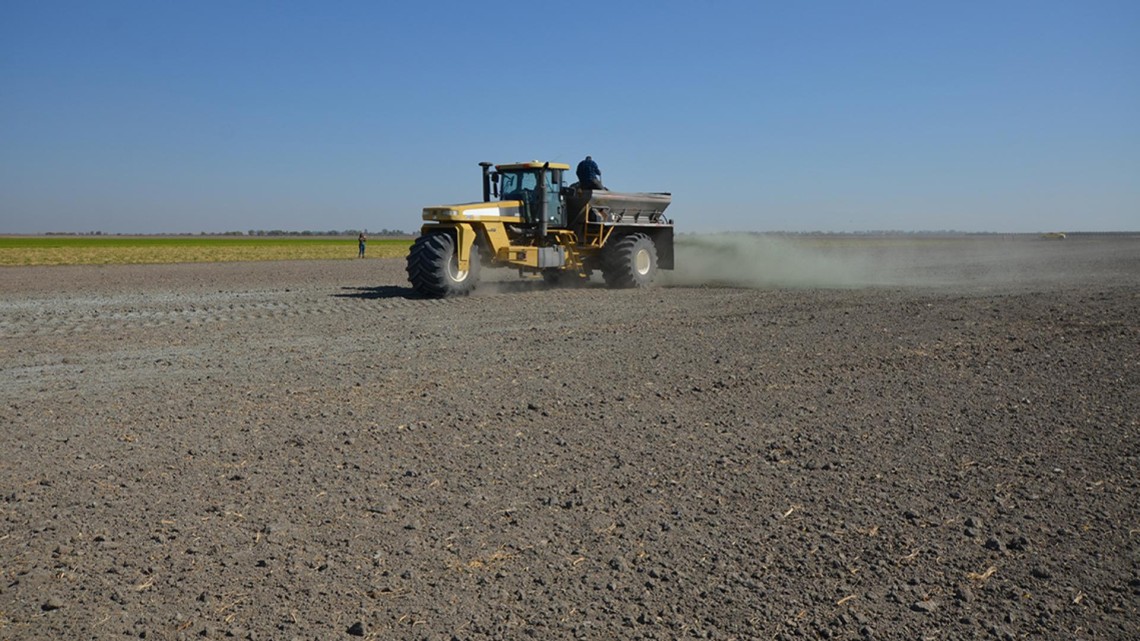
News directly from Cornell's colleges and centers
Adding crushed rock to farmland pulls carbon out of the air
By Amy Quinton
Adding crushed volcanic rock to cropland could play a key role in removing carbon from the air. In a field study, scientists at the University of California, Davis, and Cornell University found the technology stored carbon in the soil even during an extreme drought in California. The study was published in the journal Environmental Research Communications.
Rain captures carbon dioxide from the air as it falls and reacts with volcanic rock to lock up carbon. The process, called rock weathering, can take millions of years — too slow to offset global warming. But by crushing the rock into a fine dust, rock weathering speeds up. Previous studies have estimated this “enhanced” rock weathering could store 215 billion tons of carbon dioxide over the next 75 years if spread across croplands globally.
But until now the technology hasn’t been field-tested in dry climates.
Media Contact
Get Cornell news delivered right to your inbox.
Subscribe
